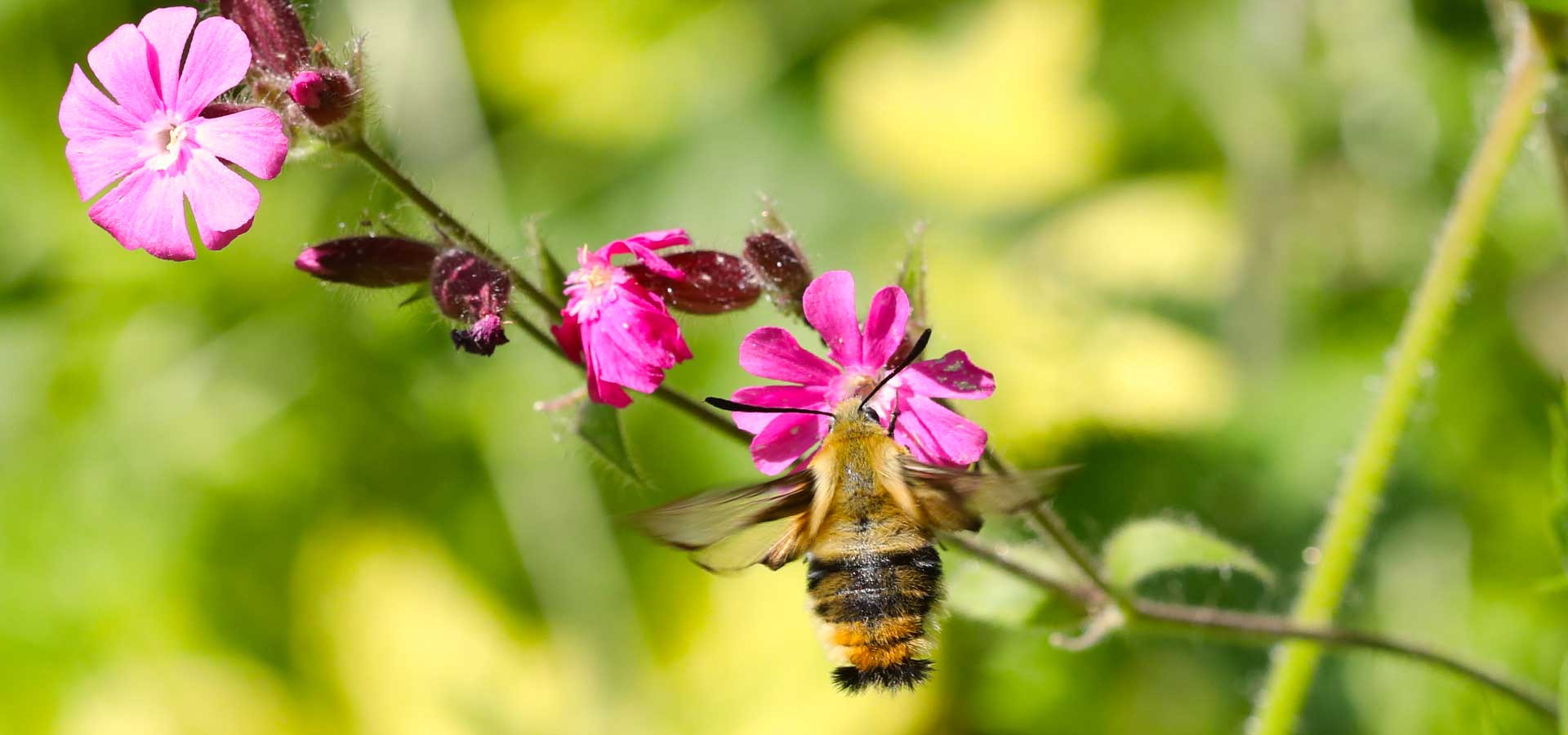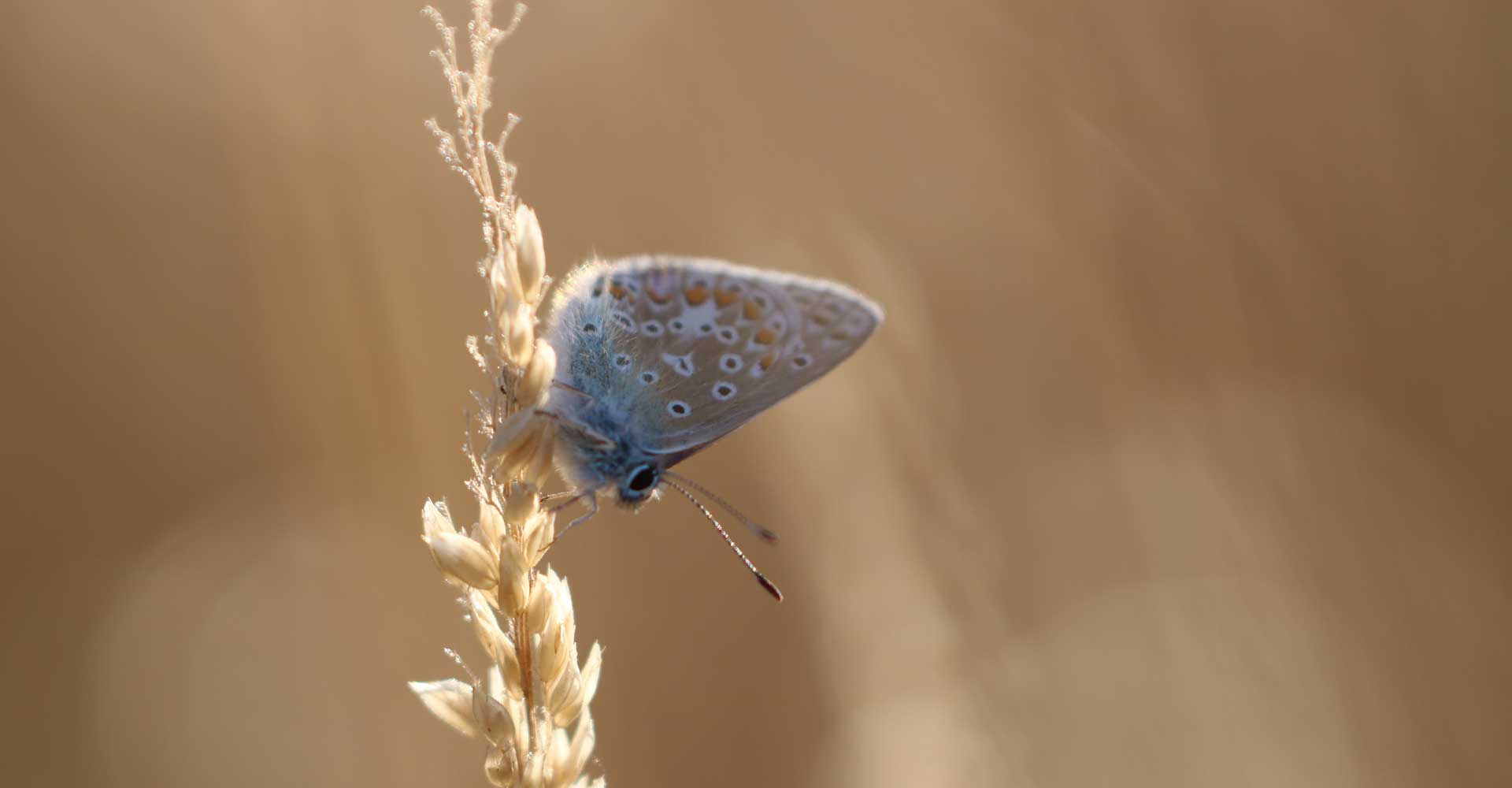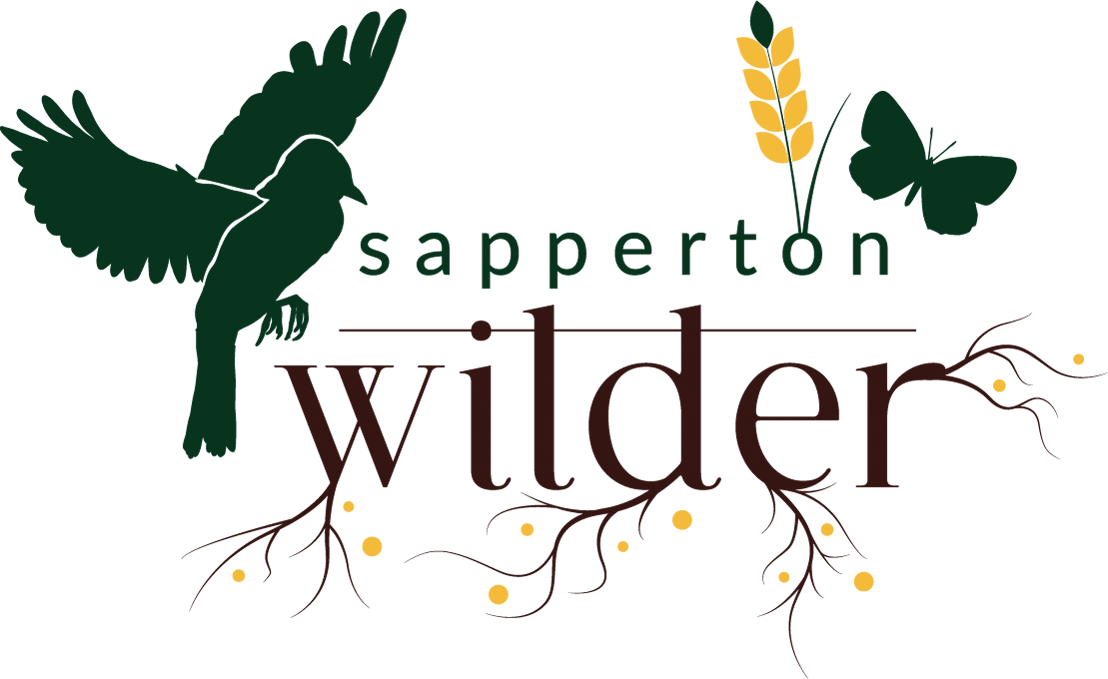It is widely accepted that over 70% of the world’s major food crops depend on pollination. Global declines in pollinators have serious implications for ecosystem functioning, human health, and food security.
In 2022, a methodology and baseline for the site was established through initial surveys conducted by a Masters students from the University of Gloucestershire on bumblebees and butterflies. In 2024, Sapperton Wilder joined the UK Butterfly Monitoring Scheme (UKBMS), one of the longest running insect monitoring schemes in the world. Monitoring consists of walking set transects once a week for 26 weeks (April-September). Not only do these results give us a solid baseline for butterflies, they also contribute to a national long-term recording scheme.
In the first year of the UKBMS, 24 species were recorded on site. Click here to read more about the results.
While most pollinators are only active in 3 seasons, moths are active all year round. We have begun monitoring moths, thanks to amazing volunteers who have been moth trapping regularly throughout 2024. This will give us an idea of what species are present and how their diversity and abundance changes over time.

We are allowing our hedges to expand and grow, implementing rotational cutting, giving pollinators plenty of nectar and pollen sources throughout the year. Wildflower margins and herbal leys are being established and timing the cuts of these to best align with pollinators and other invertebrates.
Long-term monitoring will show us how changes in land management affect these populations.

